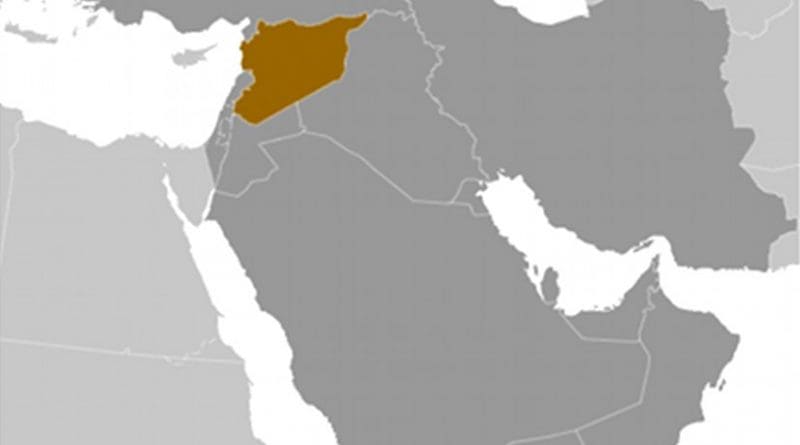Iran And Russia In Syria: What Are The Stakes? – Analysis
By IPCS
By Majid Izadpanahi*
Iran has a number of reasons to prop up Assad, while Iran’s Arab rivals, especially in the Persian Gulf, and Turkey, are supporting the opposition groups including extremists to force him out of office. The fall of Assad can bring into power Saudi-Turkey-backed successors that would be anathema to Iran.
First, Iran and Syria along with Hezbollah in Lebanon constitute an “axis of resistance” and a ‘Shia crescent” in the view of Iran’s rivals, and Syria is the only way that Iran can keep touch with Hezbollah.
Second, Iran is concerned about Iraq, which shares a long border with Iran. Iran considers Syria a key element in the protection of the Iraqi government. If the Syrian government loses to Sunni extremist opposition groups, it can adversely impact the Iraqi government, and directly threaten Iran’s western border.
Third, Syria, which has been Iran’s only Arab ally in the region, holds a significant position in Iran’s anti-imperialist revolutionary principles. Thus, it has been a vital figure in helping Iran break the isolation caused by being surrounded by a Sunni and Arab majority. If Syria were to collapse, it would change the balance of power in the Middle East against Iran, and lead to its further isolation.
Involvement in Syria is a zero-sum game for Iran, and the Saudi Arabia-Turkey combine. Iran sees Syria as part of the solution while Saudi Arabia and Turkey, would like to see Syria without Assad. So, Assad’s government collapse will definitely have security, political and economic repercussions for Tehran and damage Iran’s credibility and prestige as a revolutionary dominating state.
Russia’s Motives
Syria’s alliance with Russia dates back to the days of the Soviet Union. There might have been some tactical changes in their policies towards each other at certain times, but the nature of their alliance has always been the same. Syria and Russia’s opposition to the West has brought the two countries close together.
Russia has a naval military base in Tartus, Syria. This is Russia’s only naval base in the Mediterranean, which plays a vital role in Russia’s Syria policy and its maritime doctrine. This is significant motivation to support Assad. Unlike Russia’s claim of targeting the Islamic State (IS), most of Russia’s recent strikes have been planned in the Western part of Syria – Hama, Latakia and Idlib – where anti-Assad non-IS operatives dominate. This is in order to secure the naval bases, and check any threat to Assad that could undermine Russia’s authority in the region.
Jihadists from Chechen and Caucasus are another reason that has brought Russia to Syria. It is estimated that around 2,500 Russian nationals and 7,000 others from Soviet republics have joined the IS and other Islamist groups fighting against Assad. Prominent among them is the Chechen IS leader Abu Omar al-Shishani, who hopes to return home and fight against Moscow after bringing Assad down. These jihadists could pose a big threat inside Russia’s borders. Hence, considering the frequent attacks by Chechens inside Russia, this is a national security issue for Putin and a pre-emptive war.
For Assad, this is a question of self-preservation. Without Iranian and Russian involvement, his government would have toppled. From his point of view, there is no difference between extremists such as the IS and seculars such as the Syrian Free Army. In fact, secular fighters could very well be more threatening to Assad’s Syria than the IS if the former are to grow in strength.
What brings Iran and Russia together in Syria?
Iran and Russia have become close partners given common enemies, and common friends. Both, for different reasons, share similar attitudes towards Syria.
According to the Iranian point of view, extremists in Syria are supported by the US and its regional allies to bring down Assad. Iran’s cooperation with Russia could therefore be a turning point that could undo their attempt. Saving Assad means Iran can secure its regional hegemonic position and restore a favourable balance of power.
For Russia, their victory would mean removing opposition to Assad, which could also involve the crushing of Chechen rebels before their return to Russia. This would also allow Russia to play an international role and gain decision-making power in the Syrian crisis that would, in turn, help Russia expand its influence and emerge as a crucial player in the region.
* Majid Izadpanahi
Former Research Intern, IPCS

